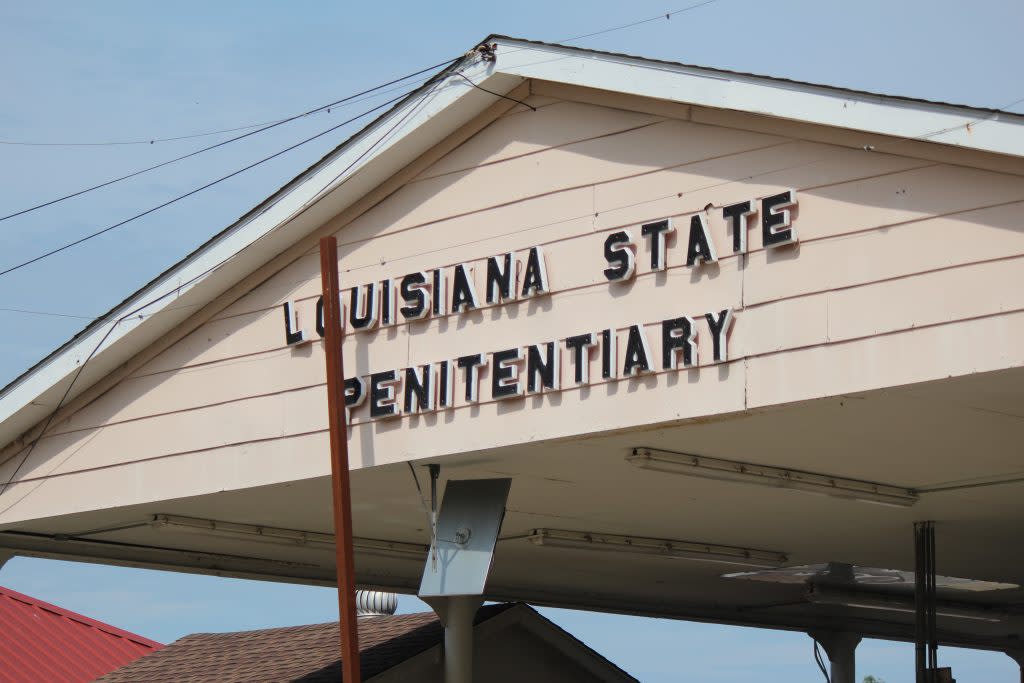Louisiana lawmakers snub Jewish community’s plea to block nitrogen gas executions

A federal appellate court this week refused to throw out a ban on housing incarcerated youth at Angola. (Photo credit: Jarvis DeBerry/Louisiana Illuminator)
A legislative attempt to pull nitrogen hypoxia from Louisiana’s death penalty options failed Tuesday, despite pleas from the Jewish community that it would revisit the trauma their ancestors experienced during the Holocaust.
Republicans on the House Committee on the Administration of Criminal Justice rejected a proposal from Sen. Katrina Jackson-Andrews, D-Monroe, in a 3-8 vote. It would have eliminated a method of execution state lawmakers approved in January during a special session devoted to criminal justice.
Death penalty advocates have pushed for the option to be added in Louisiana since January when Alabama became the first state to use it. Since Kenneth Eugene Smith’s execution, a lawsuit has been filed against the state with claims that nitrogen hypoxia amounts to cruel and unusual punishment. Witnesses say Smith struggled and appeared to be in distress before dying at the Holman Correctional Center in Atmore, Alabama.
The coalition Jews Against Gassing quickly assembled once nitrogen became an option in Louisiana. Mississippi and Oklahoma have also approved the method but have yet to execute anyone using it.
Jackson-Andrews told the committee Tuesday the concerns of Jewish people over lethal gassing resonated with her.
“I agree with them,” the senator said. “My people were hung for a number of years throughout this state. And if the death penalty included the gallows of hanging, I would be here saying that invokes trauma because that was the method that was used to eradicate … my ancestors.”
Rabbi David Cohen-Henriquez with the Shir Cadash Conservative Congregation in Metairie told lawmakers he was opposed to “the use of poison for state-sanctioned murder.”
“As a Jew, as a rabbi and as a human being, I cannot stand silent when such a depravity is proposed in our own backyard,” Cohen-Henriquez said. “I cannot remain silent against a method of execution that so deeply offends our people and displays such blatant disrespect for our collective trauma.”
GET THE MORNING HEADLINES DELIVERED TO YOUR INBOX
John Sinquefield, senior counsel for Attorney General Liz Murrill, took issue with the characterization of nitrogen gas as poison. A former East Baton Rouge Parish prosecutor, he secured the conviction and death penalty for serial killer Derrick Todd Lee in 2004. Lee died in prison in 2016 of heart disease before he could be put to death.
Sinquefueld maintained use of nitrogen gas in executions is humane and painted Jackson-Andrews’ proposal as a first step toward doing away with the death penalty entirely.
“This is anti-death penalty,” Sinquefield said. “It’s a wolf in sheep’s clothing meant to eat up the death penalty because they know we don’t have the drugs for lethal injection, we don’t have a workable electric chair, and it’s under litigation.”
Louisiana last put a condemned prisoner to death using lethal injection in 2010 when convicted murderer and child kidnapper Gerald James Bordelon. Prior to that, the same method was used to kill Leslie Dale Martin in 2002 for rape and murder.
The electric chair hasn’t been used in Louisiana since 1991. After Andrew Lee Jones was executed for murder, the device called “Gruesome Gertie” was retired when a lawsuit challenged whether its use constituted cruel and unusual punishment. It’s now part of a museum display at the Louisiana State Penitentiary in Angola.
State lawmakers also approved lethal injection in 1991, and it has been used eight times. In recent years, the prescription drugs needed to carry out such death sentences have been hard to obtain. Some of the pharmaceutical companies that make them have pulled their products over the resulting bad publicity.
During the January special session, state lawmakers approved legislation to exclude records related to drugs used for lethal injections from public records law. It takes effect July 1. No executions have been scheduled in Louisiana as of yet.
Five convicted killers have been executed in the United States so far this year. In addition to Alabama, convicted murderers have been put to death in Georgia, Missouri, Oklahoma and Texas — all through lethal injection.
Ten other condemned men are under active death warrants with execution dates set for 2024 in Georgia, Missouri, Ohio, Oklahoma and Texas. Fourteen others have inactive death warrants because their deaths have been rescheduled or they await a new execution date, according to the Death Penalty Information Center.
In Idaho, the lethal injection of Thomas Creech was halted Feb. 28 because medical personnel failed 10 times to access veins in his arms and legs to administer lethal drugs. Creech, who has confessed to 42 murders, remains on death row without a new execution date.
The post Louisiana lawmakers snub Jewish community’s plea to block nitrogen gas executions appeared first on Louisiana Illuminator.

